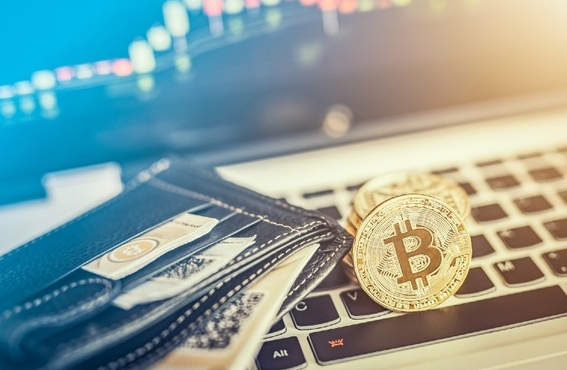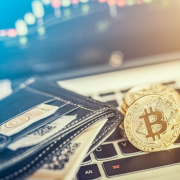Digital Currency Exchanger (DCE) definition for investors
Table of Contents
A Digital Currency Exchanger (DCE) is a single individual or legal entity that acts as an online market marker and exchanges fiat currencies with digital currencies or other electronic money for electronic money at a fee. Digital currencies act as autonomous currencies rather than government-approved paper money. Many digital exchangers (DCEs) are private companies. Thus, it is challenging to access the company’s financial and administrative information.

Digital Currency Exchanger (DCE): Explained
Most exchanges are done online, not in physical locations. DCE charges a fee for these types of transactions. This commission can take the form of a specific commission or through the bid/ask spread. Currency exchange also accepts payment by credit card, crypto coins, bank transfer, money order, and other payment methods. A Digital Currency Exchanger is also known as a cryptocurrency or crypto exchange.
Digital currency exchange platforms can send money directly to an investor’s virtual wallet or exchange money with a prepaid card that can be used to withdraw cash from an ATM.
Digital currencies act as autonomous currencies rather than government-approved paper money. Digital Gold Cash (DCG), for example, is an electronic currency whose value depends on the price of the bullion. DCG provides consumers with the same inflation protection as owning gold physically but is considered safer and more convenient than holding a physical commodity.
New developments of digital currency exchanger
Digital currency exchanger is fast evolving and changing with the advent of cryptocurrencies such as bitcoin, litecoin, ethereum, etc. There are multiple digital exchangers in the market, some of which are more trustworthy and dependable than others. The majority of these exchangers are privately owned, and so the company’s financial and administrative information is not accessible to the general public. Also, due to the novelty of cryptocurrencies, many digital currency exchangers have only been operating for a few years.
DCE charges consumers different types of fees or commissions. They also support different types of digital currencies or crypto coins. These vendors charge a fee for trading or opening an account. Traders are encouraged to review the fees and commissions of the different types of digital currency exchangers available and compare them before opening an account.
Investors and consumers have clear risks associated with price volatility, including the risk of total investment loss, operational and security disruptions, market manipulation, and differences in liability. Regulators in the US, UK, Europe, Asia, and other countries appear to be finally trying to address the fact that businesses operating in these markets require tighter regulation as the industry is growing faster. A cryptocurrency exchange is any system that operates on the basis of trading other assets and cryptocurrencies.
As with standard financial exchanges, the main operation of cryptocurrency exchangers is to allow people to buy or sell these digital assets. Coinbase is one of the most popular and up-to-date digital exchangers. You can use these currency exchangers to trade cryptocurrencies and store what you have in your digital wallet (although there are better ways to keep your crypto coins offline and safe). The majority of digital currency exchangers also offer price tickers that help traders and investors easily track the rise and fall in the price of crypto assets over time.
Conclusion
A digital currency exchanger is a type of market maker that exchanges fiat currencies like US dollars with digital currencies like Bitcoin. They also exchange between different types of digital currencies. They make money through commissions and/or spreads. In this emerging, volatile, and daring new world, traders and investors usually pay high fees. Investors should be familiar with the risks of these digital currency exchangers before investing. Global regulations on electronic money are diverse and their appearance is still relatively young.
FAQ – The most asked questions about Digital Currency Exchanger :
What is a digital currency exchanger?
A DCE or digital currency exchanger is an individual or company that operates as an online market creator and earns a commission for swapping authorized tender and other digital currencies. These currency exchangers are privately owned businesses, making access to financial data and company administration niggling.
How does a digital currency exchanger operate?
A digital currency exchanger will not operate in a physical location. Instead, these currency exchangers operate online. These currency exchangers send money to the digital wallet of an investor directly or convert legal tenders to prepaid cards. Investors can then withdraw money from an ATM.
What are digital currency exchanger’s revenue channels?
The main source of income of a digital currency exchanger is the commission that it charges its customers by helping them to swap currencies electronically. The commission may be in the form of a percentage captivating the bid or offer spread or a fixed charge.
What payment modes does a digital currency exchanger accept?
A digital currency exchanger accepts different types of payment modes, including credit cards, wire transfers, cryptocurrency, money orders, and other payment modes.
See our other articles about forex trading:
Last Updated on January 27, 2023 by Arkady Müller


